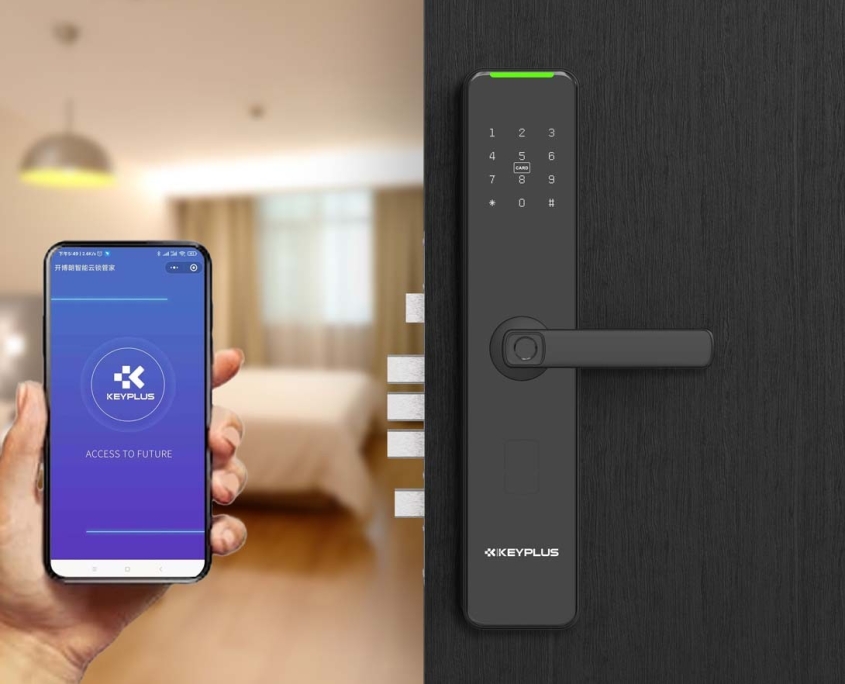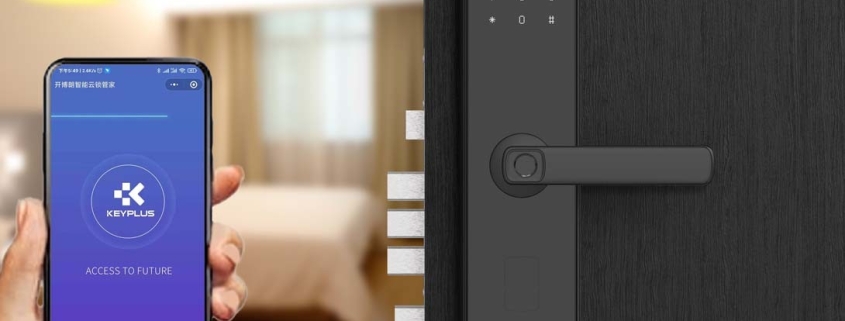How Do Smart Locks Work on Airbnb?
For Airbnb hosts, managing guest check-ins can be one of the biggest headaches. Coordinating key exchanges, dealing with lost keys, and worrying about unauthorized access are all common frustrations. That’s why smart locks have become a game-changer for short-term rental owners.
But how exactly do smart locks work with Airbnb? Can guests unlock the door with their phones? How do you give temporary access without handing out physical keys? In this guide, we’ll break down everything American Airbnb hosts need to know about using smart locks for smoother, more secure rentals.
Why Airbnb Hosts Love Smart Locks
No More Physical Key Hassles
-
No need to meet guests in person for check-in.
-
No risk of lost or copied keys.
-
Eliminates the need for lockboxes (which can be broken into).
Remote Access & Automation
-
Lock or unlock the door from anywhere via an app.
-
Automate check-in/check-out times.
-
Grant access to cleaners or maintenance workers without being onsite.
Enhanced Security
-
Temporary access codes expire after checkout.
-
Activity logs show who entered and when.
-
No more guests making unauthorized copies of keys.
Better Guest Experience
-
Self-check-in is now the #1 guest preference (Airbnb data).
-
No more waiting around for a host to arrive with keys.
-
Guests feel more secure with unique access codes.
How Do Smart Locks Work with Airbnb?
1. Types of Smart Locks for Airbnb
Not all smart locks are equally suited for short-term rentals. The best options include:
Keypad Smart Locks (Most Popular for Airbnb)
-
Guests enter a unique PIN code to unlock the door.
-
No app or smartphone required.
-
Best for: Hosts who want a simple, reliable solution.
App-Enabled Smart Locks (More Advanced)
-
Guests unlock the door via Bluetooth/Wi-Fi using their phone.
-
Some locks integrate directly with Airbnb for automatic access codes.
-
Best for: Tech-savvy hosts who want remote control.
Hybrid Locks (Keypad + App Control)
-
Offer both PIN codes and smartphone access.
-
Flexibility for guests who don’t want to use an app.
-
Best for: Hosts who want to cater to all guest preferences.
2. How Do Guests Get Access?
There are three main ways to grant guests entry with a smart lock:
A. Manual PIN Codes (Most Common)
-
You create a unique code for each guest (e.g., last 4 digits of their phone number).
-
Set an expiration time (e.g., expires after checkout).
-
Pros: Simple, no app needed.
-
Cons: Requires manual setup for each booking.
B. Airbnb Integration (Auto-Generated Codes)
-
Some locks sync with Airbnb.
-
The system automatically generates and sends a code before check-in.
-
Pros: Hands-off management.
-
Cons: Only works with certain locks.
C. Bluetooth/Wi-Fi App Access
-
Guests download the lock’s app and get temporary digital keys.
-
Pros: No codes to remember.
-
Cons: Some guests may not want to install an app.
3. Setting Up a Smart Lock for Airbnb
Here’s how American hosts typically configure their smart locks for rentals:
-
Choose a lock (keypad, app-based, or hybrid).
-
Install it (most are DIY-friendly; some may need a locksmith).
-
Connect to Wi-Fi/Z-Wave (if remote access is needed).
-
Set up access rules:
-
Create unique guest codes.
-
Schedule auto-expiration after checkout.
-
Enable auto-lock (so the door locks behind guests).
-
-
Integrate with Airbnb (if supported).
-
Send instructions to guests before arrival.

Potential Downsides of Smart Locks for Airbnb
Internet Dependence
-
If Wi-Fi goes down, remote access stops working (but keypad still functions).
Guest Tech Issues
-
Some guests struggle with app-based locks.
-
Older guests may prefer a simple keypad.
Battery Life Concerns
-
Most smart locks run on batteries (last 6-12 months).
-
Always keep spare batteries available for guests.
Initial Cost
-
Smart locks range from 150−300, compared to $20 for a traditional lock.
Pro Tips for Airbnb Hosts Using Smart Locks
-
Always Have a Backup
-
Keep a physical key hidden (for emergencies).
-
Or use a lockbox as a failsafe.
-
-
Use Auto-Lock Features
-
Prevents guests from accidentally leaving the door unlocked.
-
-
Clear Guest Instructions
-
Send a step-by-step guide before check-in.
-
Include troubleshooting tips (e.g., “Press # after entering code”).
-
-
Change Codes After Each Guest
-
Prevents former guests from returning uninvited.
-
-
Monitor Access Logs
-
Check who entered and when (useful for security disputes).
-
Do Guests Prefer Smart Locks?
According to Airbnb data:
-
76% of guests prefer self-check-in.
-
76% of guests prefer self-check-in.
-
Listings with smart locks often get more bookings (due to convenience).
-
Fewer complaints about lost keys or lockouts.
Final Verdict: Are Smart Locks Worth It for Airbnb?
YES, if you want:
Hands-off guest management.
Better security (no unauthorized key copies).
Higher guest satisfaction (self-check-in is a huge plus).
NO, if:
You rent a low-budget property and can’t justify the cost.
Your internet connection is unreliable.
You mostly host long-term tenants (a traditional key might suffice).
For most American Airbnb hosts, a keypad smart lock is the best choice—easy for guests, secure, and low-maintenance.
Do you use a smart lock for your Airbnb? Share your experience in the comments!









